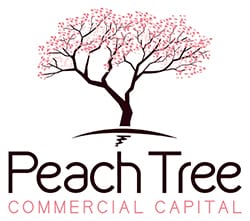Selling direct to end consumers is a solid way to capture margin and reduce the sales pipeline. B2C interactions are also a great way to build community, especially if you operate locally through a brick-and-mortar shop. The success of a B2C business, however, varies depending on its products, positioning, and price point. High-ticket items may seem out of reach, but ticket price is not the only factor in how customers perceive affordability.
So how do you manage the perception of cost to sell equipment, appliances, furniture, jewelry, and projects? Consumer financing enables customers to buy right in the store and break down the ticket price of high-value items into manageable monthly payments. Not only does consumer financing take away some of the sticker shock that can come with high-quality merchandise, but it can help to shorten the sales cycle for customers who have to “save up” to make a purchasing decision. This type of financing does not require your business to set up its own lending division, however. It’s much simpler than you might expect.
How It Works
The easiest way to set up consumer financing for your business is by working with a third-party lender who can offer funding at the time of purchase. The lender handles credit checks and payment processing, so you don’t have to. Your business receives full payment from the lender while your customers pay the lender in installments. If you sell online, the lender’s software can be integrated into your website so, customers never have to navigate away from your brand. In exchange for this convenience, the lender typically charges a low, flat rate, plus a small percentage of the sale.
Types of Consumer Financing
What can a third-party lender offer your business in terms of consumer financing? Depending on your business model and needs, you have several options.
- Point of Sale (POS) – Offers quick credit decisions at the moment of purchase from your company’s register or website, often used for impulse buys.
- By Now, Pay Later (BNPL) – Offers a short-term, typically interest-free way to pay in equal installments, often used by online consumers.
- Lease-to-Own – Offers an avenue to ownership without paying the full purchase price upfront, often used for furniture and appliance sales.
- Installment Loans – Offers a longer payment plan option with low interest rates and scheduled payments, often used for equipment sales.
These are four of the most popular options but, consumer financing can also take the form of cost deferment, lines of credit, and credit cards too. If your business has a specific option in mind, talk to our about finding the right financing partner.
Benefits of Consumer Financing
The ways B2C businesses can benefit from consumer financing are essentially the same across the different types. In addition to providing more consumer spending options while providing immediate payment to your business, consumer financing has a long list of benefits.
- Increased Sales – Once your customer leaves your store or your site, the odds that they’ll purchase from your business drop dramatically. Consumer financing encourages them to stay focused on your brand.
- Customer Loyalty – Customers will remember a business that can accommodate their needs without making them feel financially excluded. They’ll be more likely to return to your location in the future.
- Improved Cash Flow – While your customers don’t have to pay the full purchase price upfront, your business still sees full payment right away. Consumer financing makes it easier to manage cash flow and fund growth.
- Move Inventory Faster – Because your customers can walk away with the item they want or schedule service immediately, you can bring in new inventory to reach more customers faster.
How might your business profit from improved cash flow and a broader customer base? Have you been putting growth on hold while you wait for cash flow to increase?
How to Set Up Consumer Financing
Now that you’ve seen some of the benefits of offering financing to your customers, how do you implement a consumer financing system? While you can do the work of developing your business as a lender, working with a third-party lender takes away risk and headache. It’s important to connect with a lender that understands your business model, matches financing with your price point, and integrates smoothly into your sales process since not all lenders have the same level of experience.
To find lenders who offer robust financing at the most advantageous terms for your business, talk with a member of our team. A broker can quickly filter out lenders who don’t have the flexibility you need or knowledge of your industry. We work with you to determine the size of the program and lending partner that benefits you most, and that can scale and grow with your business.
With consumer financing, you have a tool to overcome the “not the right time to buy” justification. Your broker will help you affirm that any time can be the right time to purchase from your business.

